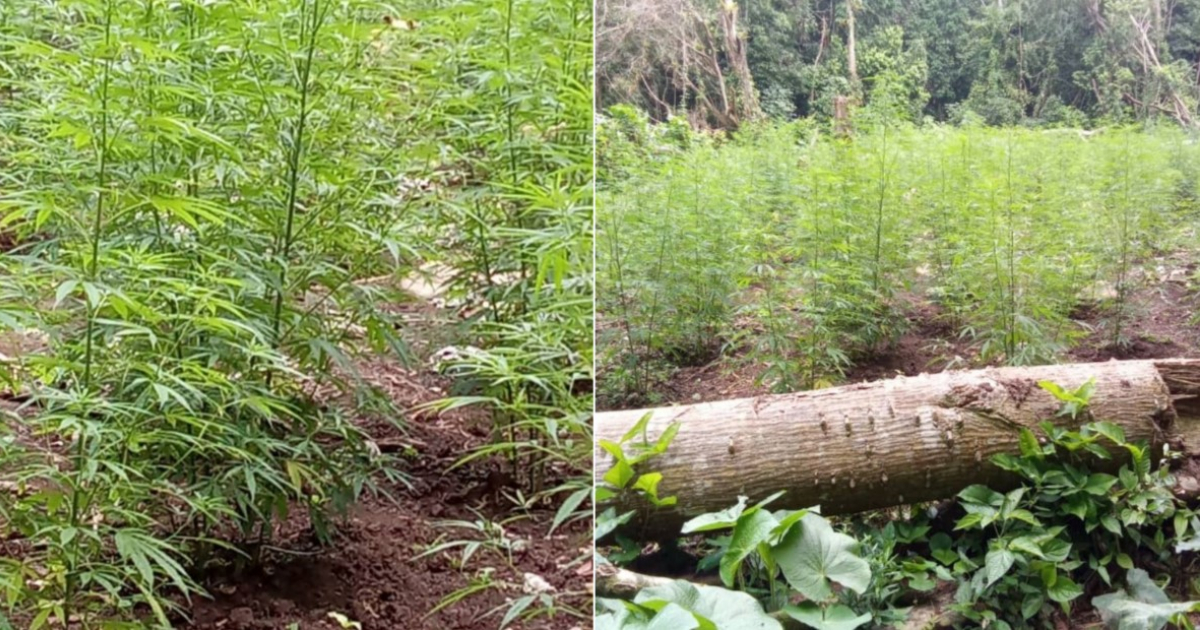Cuban authorities dismantled an extensive marijuana plantation in the locality of La Tabla, in the mountainous area of the Tercer Frente municipality, Santiago de Cuba province.
According to the official site Héroes del Moncada on Facebook, more than 3,000 marijuana plants and a large quantity of seeds ready for planting were found in the area by officers from the National Revolutionary Police (PNR) and the Cuban Forestry Corps.
Several individuals were arrested, both for participating in the illegal cultivation and for the trafficking of the drug.
Facebook post
“They believed they were small farmers, but they used the land for purposes that severely harm society,” the post denounced on social media.
The authorities have not revealed the identities of those involved or the legal consequences they will face, although they emphasized the seriousness of the crime in a country where drug trafficking and use are widespread, especially among young people and adolescents.
“The use of drugs is not an escape, but a trap that destroys health, dreams, and the future,” warned the spokespersons of the operation.
While the increase in drug consumption is more visible in the capital of the island, this case demonstrates that illicit activities related to narcotics also impact the rural areas of the country.
What happened at the marijuana plantation in Santiago de Cuba?
Cuban authorities dismantled a large marijuana plantation in La Tabla, in the Tercer Frente municipality of Santiago de Cuba, discovering more than 3,000 plants and a significant quantity of seeds. Several individuals were arrested for their involvement in the cultivation and trafficking of this drug.
What is the Cuban regime’s stance on drug trafficking?
The Cuban regime maintains a strict and zero-tolerance stance against drug trafficking. Intensive operations and exemplary trials are conducted to deter these activities. Penalties can be severe, including up to 30 years in prison or even the death penalty in aggravated cases.
How does marijuana trafficking affect rural areas of Cuba?
The trafficking of marijuana not only affects urban areas but also rural ones. The mountainous and rural areas are used for illegal growing, as is the case in La Tabla, which presents a growing problem as these illicit activities expand beyond the cities.
What measures is the Cuban government taking to combat drug trafficking?
The Cuban government has intensified police operations, increased arrests, and organized exemplary trials. Additionally, it conducts prevention campaigns and promotes citizen collaboration to identify and dismantle drug trafficking networks.
In La Tabla, Santiago de Cuba, a large marijuana plantation with over 3,000 plants was dismantled. Read More


